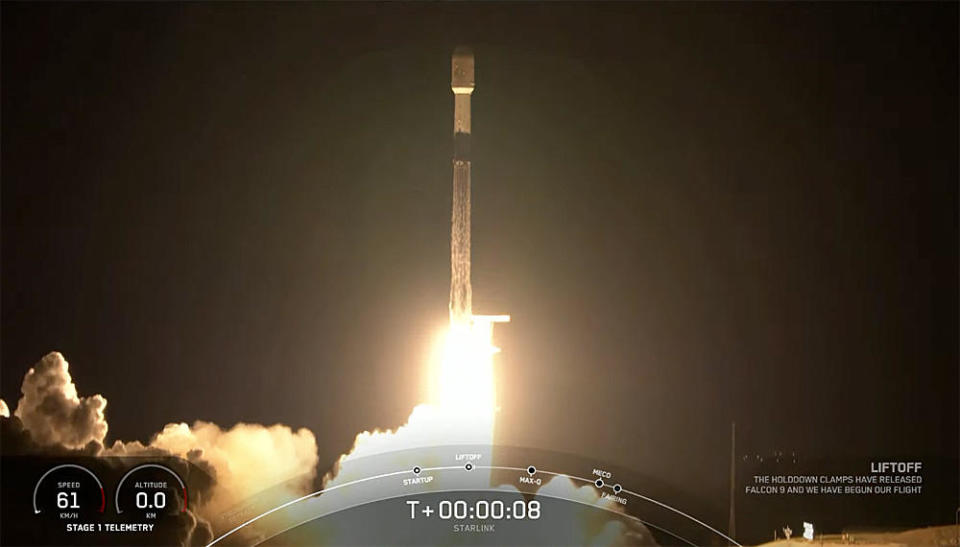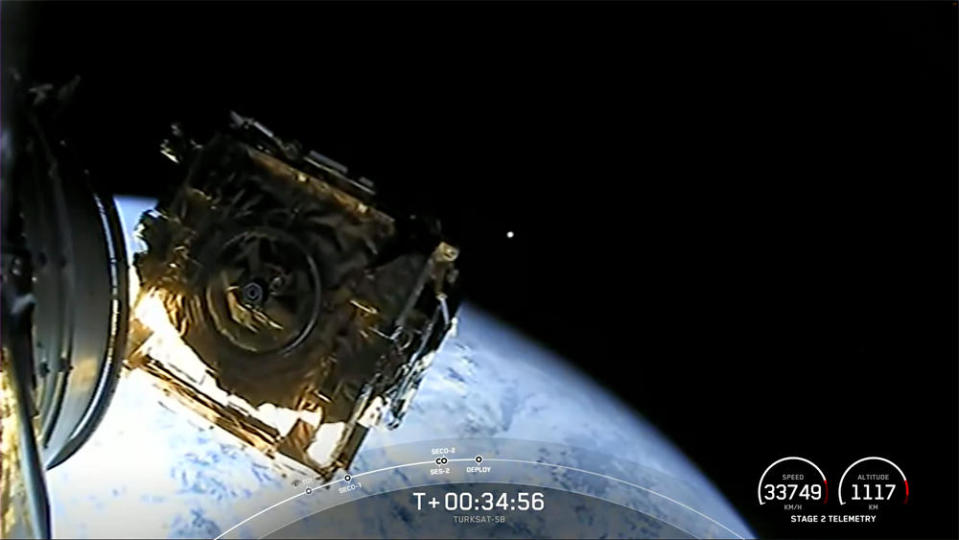SpaceX launches two Falcon 9 rockets from both coasts in one day
In an end-of-year launch surge, SpaceX fired off two Falcon 9 rockets Saturday, launching 52 Starlink internet relay satellites from California in the morning and a Turkish communications satellite from Florida a little more than 15 hours later.
The rapid-fire launches marked a company record 29th and 30th Falcon 9 flights so far this year, with a final launch planned for Tuesday to send an unpiloted Dragon capsule to the International Space Station carrying crew supplies, science gear, spare parts and Christmas presents.
That flight will mark the California rocket builder's 134th Falcon 9 launch since the booster's debut in 2010, the 137th counting three triple-core Falcon Heavy rockets.

SpaceX engineers began the day at Vandenberg Space Force Base northwest of Los Angles, launching the latest batch of Starlink satellites at 4:41 a.m. PST using a Falcon 9 with a first stage making a record 11th flight.
The satellites were deployed as planned, increasing the total number of Starlinks launched to date to 1,944, while the rocket's first stage completed a pinpoint landing on an offshore droneship to chalk up SpaceX's 98th booster recovery, and its 75th at sea.
It was the 17th Starlink launch this year and the 33rd overall as SpaceX builds out a globe-spanning constellation of commercial internet relay stations designed to provide broadband service to any point on the planet.
At the Cape Canaveral Space Force Station in Florida, meanwhile, another team of engineers readied another Falcon 9 for launch Saturday evening, this one carrying the Turksat-5B relay station.
Using a first stage making its third flight, the Falcon 9 roared to life and shot away from launch complex 40 at 10:58 p.m. EST, arcing to the east over the Atlantic Ocean under the light of a full moon.

After two firings of the rocket's second stage, the satellite was released into an elliptical "transfer" orbit as planned. It was SpaceX's second launch this year for the state-owned Türksat Satellite Communications and Cable TV Operations Co.
Over the next few weeks, on-board thrusters will put the satellite into a circular orbit 22,300 miles above the equator to provide civil and military data relay, TV and broadband services.
With Saturday's launches behind them, and two successful booster recoveries, SpaceX engineers will ready another Falcon 9 for a Tuesday launch from pad 39A at the Kennedy Space Center, kicking off an automated rendezvous with the International Space Station.
The launch will be SpaceX's 24th station resupply flight and the company's 31st overall flight this year, believed to be a record for a U.S. company launching payloads to orbit on a commercial basis.
Lobster population grows amid global warming

